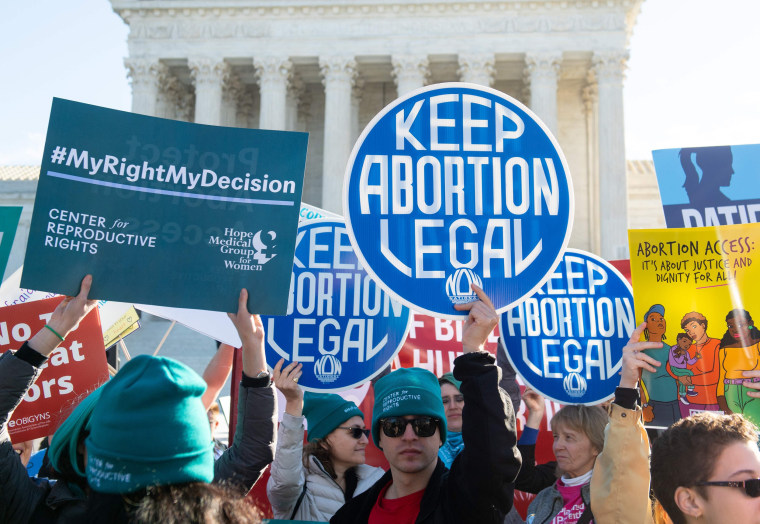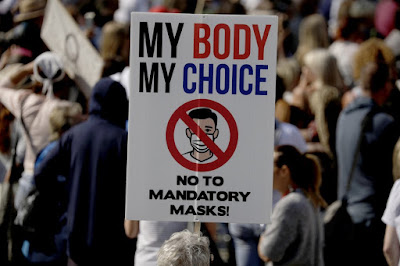
Protesters demanding an end to Trump's regime of deportations in 2019 (Pic: Charles Edward Miller/Flickr)
Are women held in a US immigration detention centre in Georgia being forced to have unnecessary hysterectomies?
That’s the question many are asking after a nurse from an Immigration and Customs Enforcement (ICE) detention centre blew the whistle about terrible health conditions there.
Dawn Wooten, who worked at the Irwin county detention centre (ICDC), gave evidence to a 27-page report by the Project South organisation.
It details many cases of “jarring medical neglect”.
The part of the report that’s particularly alarmed anti‑racists is the passage that “raises red flags regarding the rate at which hysterectomies are performed on immigrant women under ICE custody at ICDC”.
Project South says hysterectomies were carried out at “high rates” and that women who underwent the procedures “didn’t fully understand why they had to get a hysterectomy”.
At the very least this raises a question of whether patients gave “informed consent”.
Wooten’s account is backed by number of women detainees who have come forward to say they were subjected to forced hysterectomies.
Operated
A lawyer representing one of the women operated on spoke to the US news network NBC.
He said his client was told by a doctor that she had an ovarian cyst, but a biopsy to confirm this was never carried out. A hysterectomy was then performed on her.
In 2019, Pauline Binam began having irregular periods.
She was 29 at the time and had spent the past two years in custody, awaiting deportation to Cameroon.

Resisting the US’s racist president
Read More
The detention centre’s gynaecologist said he would treat a cyst on her ovaries by removing tissue from her uterus, a fairly standard procedure.
But when she woke up from anesthesia, the doctor told her he had removed one of her fallopian tubes due to a clog and that she was now likely infertile.
In this privately-owned detention centre, a large number of hysterectomy procedures are said to have been performed by one doctor, Mehendra Amin.
Some women at the detention centre describe him as the “uterus collector”.
In response to these allegations, a group of angry protesters blocked the road in New York.
In a video shared on social media, the police kettled the 50 to 60 activists and arrested eight of them.
During the coronavirus pandemic, Trump has stepped up his hard line on migration.
Those inside ICE detention centres report cramped conditions, no access to healthcare and some even say they have no access to water.
Wooten also wrote in her complaint that Irwin county detention centre had purposely under-reported Covid-19 cases, leaving detainees and staff at risk.
The horrifying treatment of those trapped in ICE detention centres is part of a racist system that seeks to blame migrants for America’s growing economic crisis.
Article Information International
CBSNews
Whistleblower says ICE detainees were subjected to unwanted medical procedures

Mexico City — Mexico said Monday it had requested more information from the U.S. on medical procedures given to migrants in detention centers, after allegations that detained Mexican women were sterilized without their consent. Rights campaigners alleged two weeks ago that a number of hysterectomies had been carried out at a privately run detention center in Georgia.
The Mexican Ministry of Foreign Affairs said it sent a diplomatic note, asking the U.S. government "to clarify the situation, requesting information on the medical attention that Mexican citizens receive" at the Irwin County Detention Center.
Nearly 9,000 migrant kids expelled under pandemic border policy
The ministry said that consulate personnel had interviewed 18 Mexican women who are or were detained at the center, none of whom "claimed to have undergone a hysterectomy," an operation involving the removal of all or part of the uterus.

The department added that seven of the women interviewed had been treated by the doctor accused of performing the sterilizations. Another of the women said she had undergone a gynecological operation, although there was nothing in her file to support that she consented to the procedure.
The women interviewed did not deny that they had been "victims of bad practices for different reasons," the foreign ministry said.
In an article published Tuesday, The New York Times said it had spoken to 16 women with concerns over gynecological treatment they had received while in custody at the Irwin detention facility and asked five independent gynecologists to review the available medical files on each women.
The Times said the independent doctors concluded that the area gynecologist used by the center, Dr. Mahendra Amin, had "consistently overstated the size or risks associated with cysts or masses attached to his patients' reproductive organs."
The doctors who reviewed the medical files for The Times "noted that Dr. Amin seemed to consistently recommend surgical intervention, even when it did not seem medically necessary at the time and nonsurgical treatment options were available," the newspaper said.
Mexico announced last week it was investigating the allegations of sterilizations, warning that such operations would be "unacceptable."
The allegations came from a whistleblower, a nurse at the center, where some detainees are held under Immigration and Customs Enforcement (ICE) custody. The nurse said that detained women told her they did not fully understand why they had to get a hysterectomy.
Project South, the Georgia Detention Watch, the Georgia Latino Alliance for Human Rights and South Georgia Immigrant Support Network filed a complaint to the government on behalf of detained immigrants and the nurse.

Congresswoman Pramila Jayapal has called for an urgent investigation into allegations that at least 17 women were subjected to unnecessary gynecological procedures that she called "the most abhorrent of human rights violations."
ICE said when the lawsuit was filed that it does not comment on matters before the inspector general, but that it takes all allegations seriously.
"That said, in general, anonymous, unproven allegations, made without any fact-checkable specifics, should be treated with the appropriate skepticism they deserve," the agency said in a statement.
Dr. Ada Rivera, the top doctor at the agency, issued a statement saying the whistleblower accusations would be investigated by an independent office, "however, ICE vehemently disputes the implication that detainees are used for experimental medical procedures."
"All female ICE detainees receive routine, age-appropriate gynecological and obstetrical health care, consistent with recognized community guidelines for women's health services," Rivera said. Her statement also said that, according to ICE data, two detainees at Irwin County Detention Center had had hysterectomies since 2018.
















